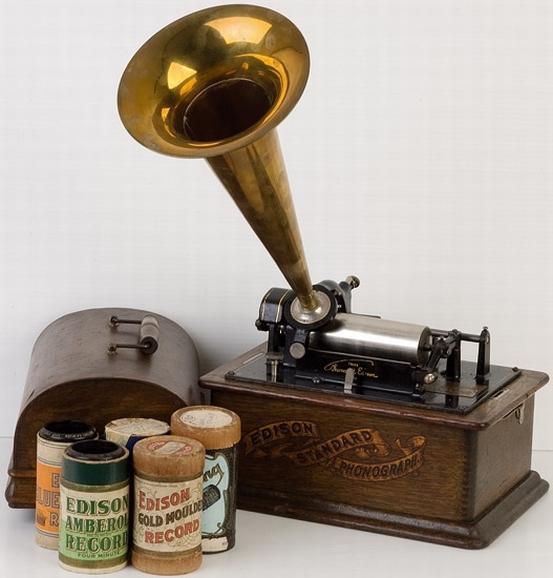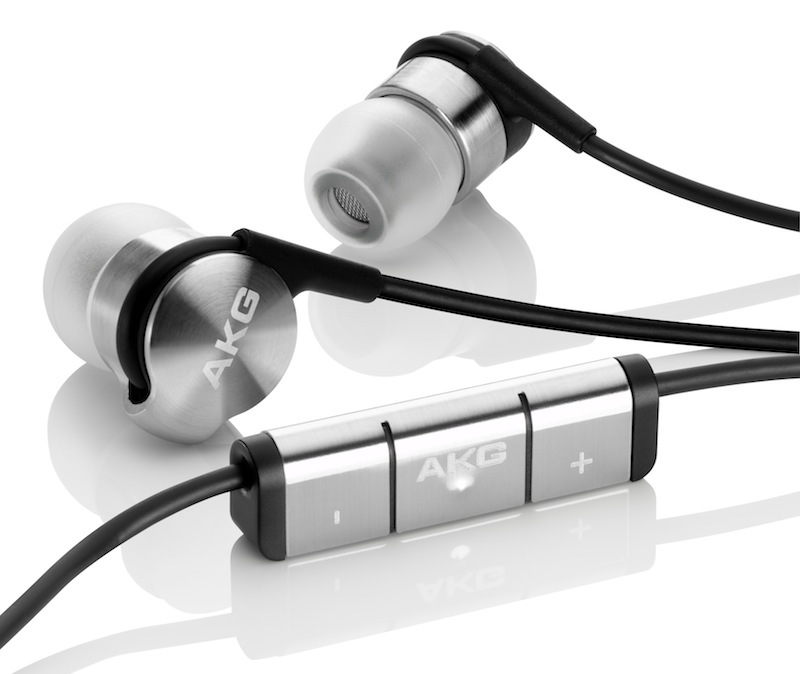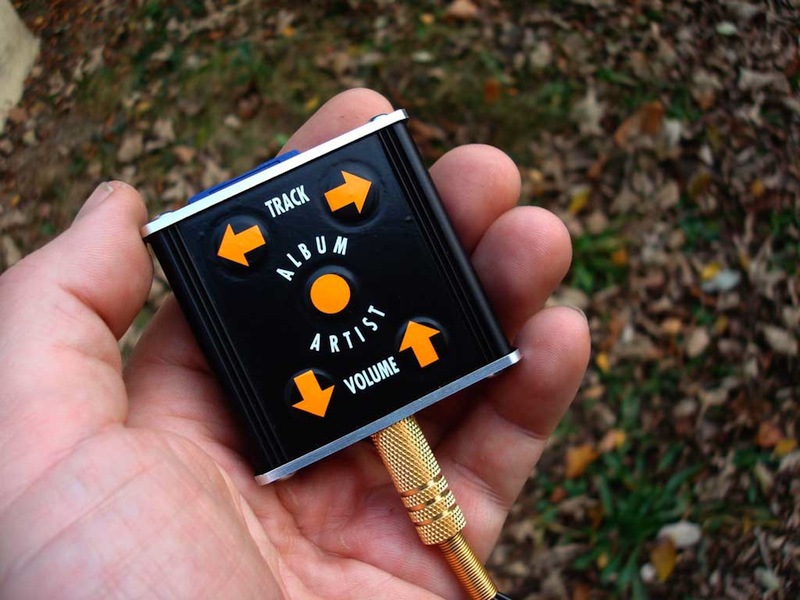Quality vs. high: what is really important in audio?
 Actually, I wanted to call this post "How I bought headphones for 40 thousand rubles." But he did not, because it would be untrue: he did not buy it, although he was seriously going to. The idea of this post has been spinning in my head for a long time, ever since I wondered: what are the best headphones I can buy for my budget (the budget then was about seven hundred rubles). And the speakers? And the amplifier? Do I need a SACD and DVD-Audio disc player or physical media died, and music streaming services run the show? And maybe vinyl? It's the same heat and lamp, and the needle rustles the grooves, while you look at a decent size envelope ...
Actually, I wanted to call this post "How I bought headphones for 40 thousand rubles." But he did not, because it would be untrue: he did not buy it, although he was seriously going to. The idea of this post has been spinning in my head for a long time, ever since I wondered: what are the best headphones I can buy for my budget (the budget then was about seven hundred rubles). And the speakers? And the amplifier? Do I need a SACD and DVD-Audio disc player or physical media died, and music streaming services run the show? And maybe vinyl? It's the same heat and lamp, and the needle rustles the grooves, while you look at a decent size envelope ...I can not say that I want to end the holivar. Rather, I want to start one more. After all, if the discussion of plastic boxes with a small speaker inside and copper wiring in three different forums contains as much text as War and Peace, then why am I worse? What is my goal? It's very simple: since the problem of 700 rubles headphones was somehow solved, many other problems have appeared. Should I buy high-resolution releases on HDTracks or can I use the convenient iTunes Store? Is listening to internet radio an insult to my sensitive audiophile ears? How much are the perfect player and perfect speakers? I wanted to work out a certain position, designate my attitude to various instruments for listening to music, and then live on it. It seems that I did it. I want to share this position with you, and at the same time find out how wrong I am. Well under the cat! I warn you in advance that I will be verbose, sentimental and grumpy.
')
Summary of the post
My position is that human hearing is the most inaccurate sense organ of all available to us. We have a good vision: the proof of this was the almost complete disappearance of non-HD TVs. But how many were! We have a good sense of smell. Great touch, and taste ... But the hearing let us down. More precisely, it is not so critical to the material. He is able to distinguish a record (any) from a live performance, but does not mind if the form sucks and the content is cool. And therefore the purchase of super-expensive devices for hearing satisfaction is not the most correct investment of money. Choosing a technique (any) to play the sound, decide how much you are willing to spend on it. And do not bother with everything else. Now the full version, and we begin with the story.
General History, Part 1
The story began in 1877, when Thomas Edison, testing another Morzian telegraph recorder model, suddenly discovered that with its help you can record a normal human voice. Edison Rollers appeared a bit later:

Extremely fragile, short-lived, horribly sounding first samples of musical records, great-grandfathers of compact discs and compact tapes. Edison's competitor Emil Berliner guessed that flat plates, unlike rollers, are much easier to produce in large quantities. Edison, known not only for his innovations, but also for the active use of public relations technologies to protect against competitors, insisted on the incomparably better quality of the rollers in terms of sound. Doesn't this remind you of anything? Dada, this was the first audiophile holivar in the world. The first records were really terrible, but the rollers were not very different. Imagine, in the end, that the technology of the early 20th century was based on the movement of such a natural nail through huge ditches on the surface of a cylinder or a thick disk. If the nail was moving fast enough, then the resulting creaking could be taken for music.
Over the past more than a hundred years ago, not a single music lover could be limited to the sole carrier of music (and later - a digital format). There were dozens of carriers. Before the generation of baby boomers had managed to assemble an impressive collection of records, there appeared some very comfortable (ha!) Tape recordings in circulation. They were replaced by compact cassettes, with the records still not gone anywhere, because they sounded better. Then there are CDs on which the history of physical media seems to have ended, despite attempts to create a “super media” like a Super Audio CD or DVD-Audio. And how many concepts were losers? Has anyone heard of the 8-track format? And about Digital Compact Cassette ? And they were!

In the late 90s, the first sane digital MP3 format finally appeared, and it was awesome: music released from the carrier! It is still said that compressed music sounds disgusting, and maybe so, but in the early 2000s, those who collected an impressive collection of pirated MP3s, in any case, did not feel good. Lossless formats have appeared: CD-quality without losses! And your hard drive is now big enough to hold a lot of albums. Oops, not really. The first compact music players could and could play music without loss, but in the first iPod it was better to record MP3 in 5 gigabytes of space. And then music services appeared with a monthly “for everything” subscription instead of paying for individual tracks. And it became completely incomprehensible what to do. For many, the idea of "collecting" music has become not at all relevant: why collect, if you can listen to anything and anywhere, even for money, even for that? But no, there were some lovers of music lovers.
Personal history
In 1994, I could afford to buy one tape per month. It was a religion. And the stall with cassettes in the central market of a provincial city was its temple. I approached him, and an hour or even two chose what to buy today. Familiar or new? Rock or electronics? Domestic or foreign? In the end, the difficult choice was made, and I listened to the new tape in a portable Walkman player for a whole month. Before shopping next. I listened to this chewed tape in a not very good device, in cheap headphones, in a noisy street, and I experienced such a thrill from listening that I probably will never experience.

10 years later, I sat in the showroom of a major high-end distributor and listened to Pink Floyd on a system worth 500 thousand dollars. There was a vinyl record player. Preamps. Lamp amplifiers, four pieces included in the biamping system, 800 watts each. Classic speakers with silk twitter and paper woofers. It all sounded divine together. I was afraid that I would no longer be able to listen to my compact CD player with inexpensive earplugs (700 rubles!). But nothing - could. And it was, in general, normal.
General History, Part 2
The beginning of the two thousandths was generally a strange time. Adherents of outdated views still clung to life: for example, Sony released the useless Hi-MD media. Koreans, and later Chinese riveted rather mediocre, but still revolutionary MP3 players. I was preparing to release an iPod, which should turn the entire industry upside down. The forums agreed that MP3 is slag, CD is no longer a cake, but there is no replacement for it.
But somehow everything quickly changed. The concept of a separate "music" player has ceased to exist in principle. The vast majority of people are satisfied with smartphones playing music from VKontakte. Owners of expensive audio equipment ceased to make it necessary to constantly change discs and turn over the records. But even for them, they suddenly began to produce a huge range of expensive, modern audio equipment:
Expensive sound cards for outputting music from a computer

Even more expensive personal audio players

Airplay-enabled home receivers

And, finally, for the sake of what this post was written. Headphones with a crazy price tag.

All this is completed with cables of $ 100 per meter, leather covers and titanium anti-vibration spikes. The period of market vacuum, when you could buy a bad MP3 player, or a good, but outdated CD player, passed. Is it better?
It became more incomprehensible.
For example, you want to buy a portable music player. Which to choose? Well, first of all, for listening to “vkontaktika” it does not make sense - the phone will cope. And if you want more? Should it support high resolution audio formats? CUE files? Should I communicate via computer via Bluetooth, and if so, by what protocol? And in general, is it in the formats? Maybe you should think about the sound quality, as well as the brand used in the player capacitors? Do you need a “double mono” system or a regular one? Does the low voltage of the internal battery bother you? What can you say about the excessively high output impedance dramatically changing the frequency response of headphones with low impedance? My friend once approached me with a question of choosing a compact player with high sound quality, sending links to insanely expensive and terribly inconvenient devices. For example such (1700 euros with delivery from Germany):

I told her something from the series: you need to listen to music, not devices. Yep
So maybe iPhone will suit everyone?
Actually, the position
I enjoy listening to music from a smartphone, although at home I have a system worth more than an order of magnitude and complexity. Super Audio CDs and Vinyls get on well in my music universe with an MP3 from Google Play Music. I listen to music: in the format that suits the moment. It is much more important for me to have access to my favorite album when I want to listen to it, and not the recording format and characteristics of the system for listening. I sometimes even take out my old Walkman and, wiping away a tear, listen to the filmed cassette collections of songs of my youth, and I'm fine. I know that technology is not the main thing.
And I suffered this knowledge by spending quite a lot of money on equipment of different levels. I know how to appreciate quality. But on the topic of "quality" as a kind of ideal, to which we must strive, I do not recognize. I buy or do not buy equipment, pay for digital music and physical media based on the following recommendations to myself:
- The cost of the audio system (whether stationary or portable) is determined only by the means at your disposal. You can buy a smartphone, and the built-in music player will cost you free of charge. You can buy a player for 100 thousand rubles:

This does not mean that the player for 100 thousand rubles will bring you infinitely greater pleasure. Pleasure - it is generally not determined by the technique.
- High definition formats (conventionally, everything that is cooler than a 44kHz / 16bit CD format) is more marketing than real use. Come here and listen in good headphones sound at frequencies from 22 to 10 kilohertz. If you are not 15 years old, you most likely will not hear anything above 15-16 kilohertz (or hear the pickups from the fig DAC in your laptop). Then what's the point of talking about supporting frequencies above 22 kilohertz? Are you sorry, bat? It should be understood that a) technology that supports HD-formats is sometimes generally better than technology that does not support them, and b) music in HD-format sometimes sounds better than regular music, even if it is compressed into MP3.
- Even on the highest-quality technology, your favorite album may sound disgusting, simply because it is disgustingly recorded, and you cannot do anything about it (this is so rich a topic that it deserves a separate post).
- In any audio system, the most important transition from the electrical signal to the vibrations of air. That is, most of the money you need to spend not on the player or amplifier, and on the speakers and headphones. Of course, the headphones must match the player: the super-cool Sennheiser HD800 will play with the iPhone very well, but very quietly. The power of the amplifier in the smartphone will simply not be enough.
- If you have a lot of music, the convenience of managing your collection is no less important than the sound quality. In other words, an old 160GB iPod Classic may be more useful than a fancy player with capacitors from tears of virgins, but with 32 gigabytes of non-expandable memory. Just because more music will fit into the iPod.
- Vinyl sounds no better , it sounds different . And this very “differently” is determined by the objective shortcomings of vinyl records as a carrier. Noise, crackling, the need to spoil the frequency balance and then restore it - these are all the components of the warmest tube sound. And that's fine. I love vinyl very much, because it corresponds to the musical era, of which I am a fan. Tom Waits, Pink Floyd and Deep Perple initially sounded with rustles, squeaks and high frequencies, and what the hell was a great time!
- Physical carriers now meaningless to buy. At a minimum, it is pointless to buy them to listen to music. For collecting carriers themselves - completely.
About not perfect hearing
I want to finish my undermining of the foundations with what I started from. Why do I think that human hearing is not worthy of those titanic engineering efforts that are invested in high-quality sound? I have no scientific evidence (I am a humanist at all). But there is an important logical conclusion: if a cassette player with a dead battery and a chewed cassette brings no less joy than the world's most expensive audio system, it means that the system does not matter.
Does this mean that I am ready to throw out my entire home audio system right now, send mobile equipment with headphones after it, and return to compact cassettes? Of course not, primarily because it is inconvenient. But if such a cataclysm happens in my life that I remain alone with my ancient player and a pair of self-written collections, then nothing terrible will happen. At first I will be horrified at how dull and uneven my old cassettes sound. And then get used to it. And this, in fact, is not a lack of my hearing, but dignity. Our ears are able to enjoy the beautiful music, even in the most terrible technical conditions. Isn't that great?
Music lovers, admit how important music is to you? And how important is the technique?
Source: https://habr.com/ru/post/227033/
All Articles